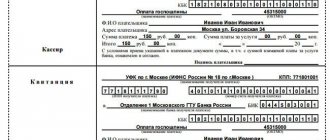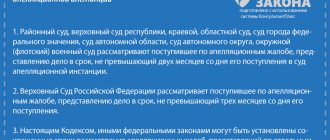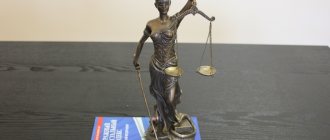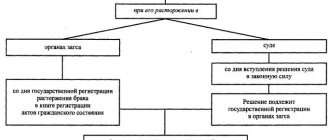What is a court decision in a civil case?
The decision made by the civil court is made in a deliberation room.
In this case, only officials considering the case are present (Article 194 of the Code of Civil Procedure of the Russian Federation). A court decision is a decision concerning the merits of the dispute between the parties to the lawsuit. It is accepted in the name of the Russian Federation and is a resolution of the case on its merits. It summarizes the outcome of the trial.
In Art. 195 of the Code of Civil Procedure of the Russian Federation states that the decision must be legal and justified. It must be accepted in full compliance with the norms of procedural and substantive law applicable to this legal relationship.
➟ world court
The powers of the magistrate are established by Law No. 188-FZ of December 17, 1998. The legal act discusses the competencies of an official.
The magistrate considers the case individually and makes a decision on the merits of the issue raised. He makes a decision that is binding. A citizen has the right to appeal the decision of a magistrate within the time limits established by law.
➟ courts of general jurisdiction
Courts of general jurisdiction include:
- cassation;
- appeal;
- supreme;
- regional;
- urban;
- regional;
- military.
Reference! Courts of general jurisdiction hear cases and resolve disputes within their competence. Decisions are made in writing.
➟ Court of Appeal
The Court of Appeal hears appeals against first instance decisions.
He may come to the following conclusions:
- to leave the decision of the first instance unchanged;
- on the cancellation of a ruling or resolution;
- about changing a court decision;
- to terminate the appeal proceedings.
This list is not exhaustive.
The official may make a different decision based on the case materials and evidence provided.
➟ absentee court decision
An absentee ruling differs from a regular one in that it is made at a court hearing where the defendant is absent. In this case, he must be properly notified of the time and date.
The operative part of the decision in absentia must indicate the procedure for filing a petition for its cancellation and the deadlines for this (Article 235 of the Code of Civil Procedure of the Russian Federation). The basis for the application may be a valid reason why the defendant was absent from the meeting.
➟ supreme court
The Supreme Court of the Russian Federation is the highest court in the Russian judicial system. He makes decisions on cases that were considered in other instances, but the result did not satisfy some of the interested parties, and they considered that legal norms had been violated.
The powers of the Supreme Court are established by Law No. 3-FKZ of 02/05/2014.
There was an accident in the apartment
The employee did not go to work due to a break in the hot water supply lines, which resulted in an accident in his apartment. The employer regarded his absence as absenteeism and fired him for a single gross violation of labor duties (clause “a”, clause 6, part 1, article 81 of the Labor Code of the Russian Federation). He issued an order in which the following were given as evidence of truancy:
- act on the absence of the employee from the workplace from 08.00 to 16.18 hours;
- memo from the head of the HR department;
- notification “On the need to provide written explanations”;
- explanatory statement of the employee;
- a copy of the minutes of the meeting of the personnel commission.
The dismissed employee went to court to be reinstated at work. From a memo from one of the employees, it turned out that the dismissed employee on the day of the accident notified her that it was impossible to go to work at 8.20.
In the explanatory note, the employee indicated the reason for his absence from work - a utility failure in the apartment.
The court's decision
The first instance agreed with the dismissal. The written evidence presented was considered, as well as the testimony of witnesses: the chairman and plumber of the HOA, the plaintiff’s mother. It turned out that the accident in the apartment was eliminated between 12.00 and 13.00.
The court proceeded from the fact that the plaintiff had no reason to be absent from work after the accident was repaired. Therefore, absence from work was regarded as absenteeism. Other reasons were also taken into account: the dismissed employee did not inform his immediate supervisor about the reason for his absence, and also did not take measures to resolve the problem - for example, he could have asked for leave without pay.
But the appellate court supported the employee. He indicated that:
- the employee was absent from work after 13.00 and before 16.18 for less than 4 hours, which, according to the Labor Code of the Russian Federation, is not absenteeism;
- the fact that the employee did not report the absence to his immediate supervisor and did not take measures to coordinate the situation is not a disciplinary offense.
The court concluded that the dismissal did not have a legal basis, as a result of which the employee suffered moral damage. Compensation for moral damage was recovered in his favor - 5,000 rubles.
How to obtain a court decision in a civil case?
Receiving a decision allows you to enforce it or appeal it to higher authorities.
The operative part must be announced during the meeting. The procedure for obtaining the document, as well as the possibility of appealing the decision, is explained to the participants in the process. The original decision remains with the court and is stored in the case file. Participants in the process may receive copies of the document. Since 2007, the State Automated System “Justice” information system was launched. The portal contains judicial information and decisions. To search, you can use the names of the participants in the process or the case number.
The decisions are posted on the website in full, but with some exceptions. The text excludes personal data of participants in the process and addresses of real estate objects. Information related to state or other secrets protected by law is removed from the documents.
Trademark No. 2R141885
appealed to the Arbitration Court to invalidate the decision of ROSPATENT against granting legal protection on the territory of the Russian Federation to the CRISTAL trademark No. 2R141885. ROSPATENT refused to provide legal protection to the trademark CRISTAL due to the fact that it is confusingly similar to the trademark “Soyuzplodimport” KRISTAL. The arbitration court satisfied the request. The Appeals Chamber supported the Arbitration Court. Due to the fact that the five-year deadline for filing an objection to the provision of legal protection of an international trademark on the territory of the Russian Federation was missed, the Supreme Arbitration Court decided to send the case to the Moscow Arbitration Court.
Sample court decision
The court decision in a civil case consists of the following parts (Article 198 of the Code of Civil Procedure of the Russian Federation):
- introductory;
- descriptive;
- motivational;
- resolutive.
Attention! The introductory part indicates the name of the court and information about the participants in the process. The date, time and place of the meeting, and the case number are written here.
The narrative section contains the details of the dispute. It states the plaintiff’s demands, the defendant’s and witnesses’ explanations.
The reasons for the case indicate the circumstances of the case, ascertained by the court, as well as the conclusions that can be drawn on their basis. Here are references to legislative acts taken into account by the official when making a decision. If the court does not consider it necessary to apply the legal documents specified by the plaintiff, then it justifies this.
The operative part states the conclusions drawn. This may be either satisfaction of claims or complete or partial refusal.
Download a sample cassation appeal in a civil case
The example contains all the main parts and references to regulations. The document is drawn up in writing. It can be done electronically. Additionally, a paper version of the document is also prepared.
An employee's car broke down
The employee, in accordance with the drivers' work schedule, was supposed to go to work for a shift, but did not show up at the workplace at the specified time. It turned out that on a day off he went out of town, and on the way back the car broke down.
At the same time, the employee alerted the carpool dispatcher about the situation. Later, he submitted a written explanatory note to the boss, in which he explained the reasons for his absence.
The employee was fired for a one-time violation of work duties - absenteeism (subclause “a”, paragraph 6, part 1, article 81 of the Labor Code of the Russian Federation).
The court's decision
The court sided with the employer, finding that the plaintiff had a real opportunity to return to the city by bus or call a taxi. But he didn't.
Moreover, having arrived in the city in the first half of the day, the employee did not go to work until the end of his shift and did not inform his employer about the resolution of the situation.
Deadlines for obtaining a court decision
The trial ends with the announcement of the operative part of the official's decision.
After this, the written document must be drawn up within 5 days (Article 199 of the Code of Civil Procedure of the Russian Federation). The magistrate may not draw up a reasoned decision. The document is written if a person participating in the case files a petition to this effect. If citizens were present at the trial, they must fill out an application within 3 days. If interested parties are not present at the meeting, they are given 15 days to write a petition for a reasoned decision. The magistrate must issue the document within 5 days after receiving the application.
Trademark No. 162803
OJSC Nizhpharm is the owner of the Levomekol trademark No. 162803. The Chamber of Patent Disputes terminated the validity of this trademark. OJSC Nizhpharm appealed to the Arbitration Court to invalidate the decision of the Chamber of Patent Disputes. The trial court rejected the objection. The courts of three instances agreed with the arguments of the Patent Disputes Chamber. The Chamber of Patent Disputes justified its decision by: That this designation has come into general use. However, an analysis of sales and production activities showed that the extension of the effect of this trademark to a specific product - ointment, which has a certain composition and has distinctiveness. The Supreme Arbitration Court overturned the decision of the Chamber of Patent Disputes.
How to appeal a court decision?
If one of the interested parties does not agree with the decision, then he can appeal it in the manner prescribed by law (Article 320 of the Code of Civil Procedure of the Russian Federation). You have a month to submit your application after the decision is issued. The complaint may concern either the entire decision or part of it.
The court's decision comes into force upon the expiration of the period for appeal, if they have not been appealed, that is, after a month.
The document is submitted in writing.
It should contain information:
- name of the court;
- information about the applicant;
- an indication of the court decision being appealed;
- applicant's requirements;
- list of attached documents.
An appeal cannot contain claims that were not considered in the first instance.
The employee went with the child to the doctor
The employer was warned that the employee would not be able to return to work. He referred to a good reason - the child’s illness and the need to visit the clinic. Nevertheless, he was fired from work for absenteeism, since he did not provide any supporting documents explaining his absence from work.
The court's decision
The court supported the opinion of the dismissed employee. Caring for a sick child was regarded as a valid reason, even though the employee’s sick leave was not issued.
Having declared the dismissal illegal, the court also found it necessary to recover compensation for moral damage in favor of the plaintiff - 3,000 rubles.
Questions from our readers
How to obtain a copy of a court decision in a civil case?
To obtain a copy, a citizen must independently contact the court office. For persons who could not attend the trial, the document is sent by mail to the address indicated in the case materials.
To obtain a decision, you must write an application addressed to the chairman of the court. A citizen can apply for a copy in person or through a representative if the latter has a notarized power of attorney.
How to obtain clarification of a court decision?
If the court decision is unclear (for example, the wording in the operative part is vague), the interested person may apply to the court to obtain clarification (Article 202 of the Code of Civil Procedure of the Russian Federation). To do this, you must write a corresponding application to the office.
The court has the right to clarify the information without changing its content. The procedure is performed if the period of validity of the compulsory execution of the document has not expired or it has not yet been executed.
Trademark No. 240053
LLC "Beiersdorf" (Germany) registered the trademark "NIVEA". Beiersdorf LLC filed an objection to the registration of the BRK-Cosmetics LLC trademark “LIVIA” No. 240053 with a late priority date to the Chamber of Patent Disputes. The trademark "BRK-Cosmetics" is confusingly similar to the trademark of Beiersdorf LLC. The Chamber of Patent Disputes and the court of first instance rejected the objection. The Supreme Arbitration Court declared the decision of the Chamber invalid, since a study of the homogeneity of the goods was not carried out and the case materials on the trademark of BK/RK-Cosmetics LLC were regarded as a manifestation of unfair competition.
Underwater rocks
Citizens may encounter the following problems:
- If the court made a decision in absentia without properly notifying the defendant of the time and place of the hearing, then it can be issued either upon a personal application of the interested person or sent by mail. The period for appeal is counted from the moment the citizen receives the document in hand.
- The appeal is addressed to a higher court, but is filed through the structure where the case was originally conducted. The official will independently submit the document for further consideration.
- When filing an appeal, citizens often experience difficulties, since writing a document requires knowledge of legal acts. Therefore, it is recommended to contact specialists who will give detailed advice and help draw up an application.
Trademark No. 241119
LLC "Vena" registered the trademark "Nevskoe" No. 189158. LLC "Vena" filed an objection to the registration of the trademark "AMRO Nevskoe" No. 241119 with a later priority date to the Chamber of Patent Disputes. The Chamber of Patent Disputes upheld the registration of the trademark in relation to class 29.30. The Moscow Arbitration Court partially satisfied the requirements, excluding class 29. The appeal court overturned the decision of the Arbitration Court. The Supreme Arbitration Court overturned the Decision of the Court of Appeal and upheld the Decision of the Arbitration Court in relation to class 29. Due to the fact that class 29 of the ICGS (peanuts, almonds, shrimp, chips, fish as a snack for beer) is a homogeneous product with class 32 (beer).
Trademark No. 215283
LLC "Pharmacy Doctor" acquired the trademark under the agreement for the alienation of exclusive rights "EVCHERNIE" No. 215283 in relation to class 05 of the IKGS. It transferred the trademark under a license agreement to Parapharm LLC, which, under the control of Apteka Doctor LLC, carried out the production and introduction into circulation of dietary supplements labeled with the designation “EVCHERNIE”. The Chamber of Patent Disputes terminated the legal protection of this trademark in relation to class 05 of the IKGS. Pharmacy Doctor LLC appealed to the Arbitration Court, but to no avail. The Appeals Chamber supported the Arbitration Court, since dietary supplements are an independent type of product and do not fall under class 05 of the ICGS. Class 05 of the ICGS presupposes the designation of pharmaceuticals and other preparations for medical purposes. Dietary supplements are an independent type of product and do not belong to class 05 of the IKGS. LLC "Pharmacy Doctor" did not provide evidence of use of the trademark in relation to those types of products that are listed in the certificate; the labeling of dietary supplements under this designation "EVCHERNIE" is illegal. The Supreme Arbitration Court supported the Chamber of Patent Disputes.
Example 1
The open joint stock company “Foreign Economic Joint Stock Company for Tourism and Investments “Intourist” filed a claim with the Arbitration Court of Samara against the state enterprise “Samara-Intourist” to prohibit the use of the plaintiff’s trademark and demanding compensation for damages in the amount of 70,68,6,052 rubles. The owner of the trademark “Intourist”, registered in 1994 under class 42 of the ICTU, believes that “Samarintourist”, while providing homogeneous services, uses this trademark in advertising and print. The arbitration court rejected the claim, explaining that there was no evidence of a violation, since the designation used by the state-owned enterprise Samara-Intourist was not confusingly similar. Similar elements are the word “intourist” and the image of the globe, but they do not have independent legal protection in the plaintiff’s trademark.
It should also be noted that our organization took part in this trial in 1995.
Trademark No. 149510
LLC "Persona-Group" filed a claim with the Moscow Arbitration Court against the "Beauty Salon Persona-Style" with a demand to stop using the designation "Persona", which is confusingly similar to the plaintiff's trademark "Persona" No. 149510, and also to recover from defendant 1 million rubles in compensation. Considering that the trademark “Persona-Group” was registered in 1995, and the trade name LLC “Persona-Style” in 2003, the court recognized the plaintiff’s claims as legal and satisfied them. Material compensation amounted to 100 thousand rubles.
The consideration of several court cases in the Samara region requires special attention.
Example 4
In August 2007, Samara Intellectual Property Agency LLC (SAIS) filed a claim with the Samara Arbitration Court against Utah LLC for the unlawful use of the Marlin and Mama Cita brands. Utah LLC, co-owned by businessman Sergei Bustaev, operates a number of restaurants: Marlin, Mama Cita, Jin-Ju, Jin-Ke. is ready to give up trademarks registered in its name for an amount not exceeding $20 thousand. Thus, timely protection of intellectual property will help prevent problems in the future.






